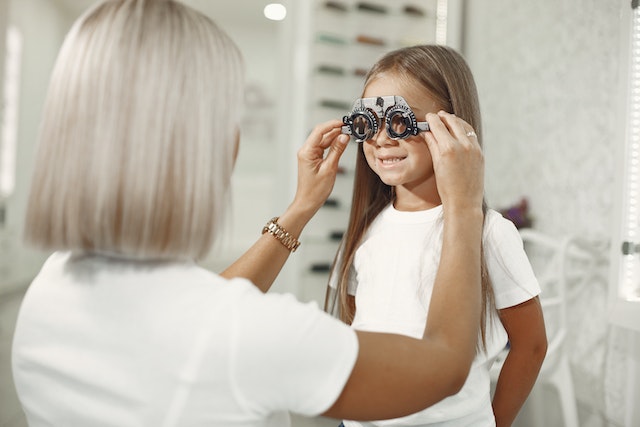Your kids’ health is an essential aspect of their lives that should be a top priority. Having regular health checks will help ensure your children’s well-being is intact. The essence of regular health screening for kids is to detect and address any potential health issues as early as possible. By catching and addressing these issues early on, you can ensure that your children develop in the best possible way. According to research, 80% of US states require at least vision screening for school-aged children, indicating the essence of such screening as your kids grow. Here are some vital health checks your kids need regularly.
- Eye screening

Getting your kids’ eyes checked regularly with the help of family and pediatric eye care will make it easier to determine potential vision problems. These issues include nearsightedness, farsightedness, and astigmatism. Without regular vision screening, you may be unaware of the severity of your child’s vision problems. You may only know when they struggle with schoolwork, sports, and other activities that rely on good vision. Children with poor vision may have difficulty recognizing facial expressions and reading social cues, affecting their social skills and relationships. Meanwhile, underlying sight problems can also lead to headaches, fatigue, and other symptoms that can negatively impact the child’s overall well-being. Regular vision tests can help detect these issues early and ensure that children receive the appropriate treatment and care to maintain their vision and overall health.
- Hearing test
Children with hearing loss may have difficulty understanding speech and following conversations, affecting their ability to learn and communicate effectively. They may also have challenges with language development, impacting their academic performance and social skills. That is why early detection of hearing loss is crucial, as it allows for quick intervention and effective management. However, there is more to hearing loss than meets the eye. Does your child fall often, or do you suspect they have balance problems? The truth is that balance disorders and hearing loss are linked because of their primary interconnecting functions. Fortunately, balance disorders may be detected when your children are screened for hearing issues. Children with hearing loss can benefit from devices such as hearing aids, cochlear implants, or other assistive technologies. The pediatrician or audiologist will recommend the right tests for your child.
- Growth and development examination

This screening is done to detect any delays or abnormalities in a child’s physical or cognitive development. When your child is not growing or developing at the expected rate, this could indicate a health problem or nutritional deficiency that needs to be addressed. Growth and development screening can detect broad-spectrum autism, attention deficit hyperactivity disorder (ADHD), or learning disabilities. Thankfully, early identification and intervention can greatly improve a child’s ability to learn, communicate, and function daily. As parents or guardians, you want your child to reach their full potential while avoiding problems that could stifle their progress in life. Fortunately, growth and development screening is a common test for children in the United States. The American Academy of Pediatrics recommends regular well-child visits, during which a pediatrician will perform physical examinations and developmental assessments. The frequency of these visits may vary depending on your child’s age, health condition, and other factors. These visits include measuring the child’s height, weight, and head circumference and checking for other concerns. There are many other health screenings apart from the above to benefit your child. However, your child’s pediatrician is the best person to go to for advice on which ones are essential.
















Add Your Comment